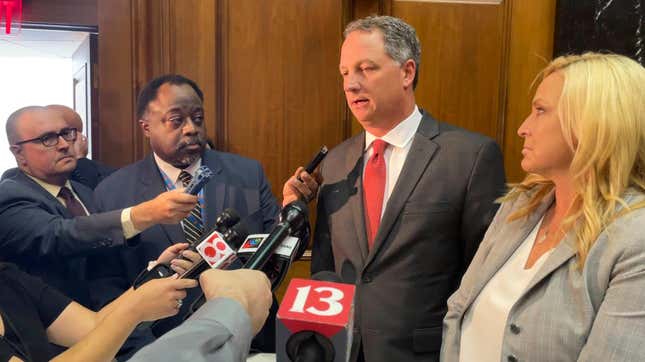Republicans Are Surprised to See the Abortion Bans They Fought for in Effect
The GOP is fumbling as their extremely unpopular abortion bans actually become law, terrorizing doctors and pregnant people and turning off voters.
AbortionPolitics

Until last month, it seemed that anti-abortion politicians had pushed the envelope as far as they could on attacking reproductive rights, knowing that Roe would ensure that most of their extreme rhetoric remained just that—words. Then Dobbs v. Jackson Women’s Health Organization overturned the federal constitutional protections for abortion, and the safety net dropped out.
States got to work. They certified laws that allowed trigger bans passed in case of this exact scenario—the overturning of Roe—to go into effect. They defended lawsuits against their abortion bans of varying lengths. In the case of Indiana, state lawmakers became the first state since Roe to outlaw abortion after 10 weeks.
The only problem is that these laws are wildly unpopular; nearly two-thirds of the country supported Roe v. Wade. And Republicans now find themselves on a downward competitive spiral into further extremism. South Carolina Rep. Micah Caskey (R) is frustrated by people who think he’s not doing enough for the anti-abortion cause. “I’m told that a year ago I was a crazy fanatic for supporting a six-week ban, and now the goal post has been moved such that if I don’t support a complete and total ban whatsoever that I’m not pro-life?” he told Politico.
Caskey is a member of a committee writing South Carolina’s latest abortion ban, but implied that all the of the coverage of the consequences of anti-abortion legislation is forcing people to grasp the real-life consequences of these laws. Remember that pregnant woman who had to bring her own discharge into an emergency room to prove that she was indeed infectious and worthy of an abortion via the “medical emergency” exception? That story continues to haunt me, but it’s one of dozens that have been reported since June.
-

-

-

-

-

-

-

-

-

-

-

-

-

-

-

-

-

-

-

-

-

-

-

-

-

-

-

-

-

-

-

-

-

-

-

-

-

-

-

-








































